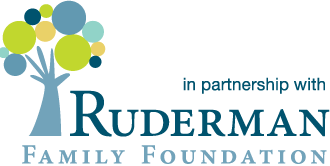Striving for a Self-Determined Quality of Jewish Life for Jews with Disabilities
02/01/2015“There comes a moment when you realize that what you’re advocating for is more than just accommodations. You’re really advocating for someone’s quality of life. That’s the moment you realize you won’t give up.” (Dyslexia Training Institute)
Sometimes Facebook produces surprises, like this quote I recently found while scrolling mindlessly through my news feed. These words, from the Dyslexia Training Institute, gave expression to the significance of the seventh annual Jewish Disability Awareness Month (JDAM) in February.
In 2009, the Jewish Special Education International Consortium held the first Jewish Disability Awareness Month in a handful of communities in the United States. Our intent was to elevate awareness that Jewish institutions were not providing meaningful Jewish experiences to Jews with disabilities. We saw JDAM as a way to come together to deliver a common message to our own community that there are indeed Jews who have disabilities, and many of them are invisible in Jewish life because of those disabilities.
Today, JDAM is recognized in Jewish communities across North America, as well as in Britain and Israel. The JDAM logo, a Magen David of intertwined blue and gold ribbons, illustrates how the inclusion of people who have disabilities must be woven into all aspects of Jewish life.
The first six years of JDAM focused primarily on raising awareness that Jews with disabilities and those who love them were either marginalized or were invisible in organized Jewish life. The Union for Reform Judaismhas been an active supporter of JDAM, encouraging Reform congregations to feature inclusion of people with disabilities in programs and events during the month of February.
Today, JDAM is also heavily focused on advocacy. The Religious Action Center of Reform Judaism has taken a leadership role in advocating for the civil rights of people with disabilities, partnering with the Jewish Federations of North America to co-convene the Jewish Disability Network, a coalition of Jewish organizations working together to advocate for disability rights at the government level. The two organizations now co-organize an annual Jewish Disability Advocacy Day that brings Jewish advocates to Washington, D.C., each February to lobby for such policies on Capitol Hill.
But awareness is only the first step toward meaningful and participatory inclusion for Jews with disabilities. Raising awareness creates the expectation that inclusion goes beyond February, beyond the special services and events. JDAM events are catalysts to carry the mission of meaningful participation into the rest of the year.
JDAM reminds us that we must set our sights on supporting people with disabilities to achieve a self-determined quality of Jewish life.
Indeed, JDAM has created the promise of inclusion for people with disabilities as fully vested members of the Jewish community. Let’s honor that promise so that all people, without regard to ability, can live the Jewish lives that they want to live, participating however they wish.
We can support people to live a self-determined quality of Jewish life, but only when we all dedicate ourselves to dialogue and learning what is important to each individual. Making assumptions about how someone is able to participate in the community has only led to doing things for them rather than with them. Let’s listen to what is important to those who dream of worshipping with others, finding a place to make friends and to make a difference, learning Torah and wrestling with the text, and teaching community what it means to be created b’tzelem Elohim, in the image of God.
The answers we seek as to how people with disabilities can participate in Jewish life come from each individual. The road to meaningful and participatory inclusion is built on respect, communication and support.
A self-determined quality of Jewish life is what we all strive to achieve – that is the message of Jewish Disability Awareness Month.
Shelly Christensen, MA, is the co-founder of Jewish Disability Awareness Month and the author of Jewish Community Guide to Inclusion of People with Disabilities. She is the founder and executive director of Inclusion Innovations, co-founder of the Jewish Leadership Institute on Disabilities and Inclusion, and frequent speaker on issues of inclusion and disability. Shelly serves on the URJ Faculty of Expert Practitioners and is the president of the Religion and Spirituality Division Division of theAmerican Association on Intellectual and Developmental Disabilities. She directed the Minneapolis Jewish Community Inclusion Program for People with Disabilities, an award-winning initiative that supported inclusion in all Jewish organizations. Shelly and her husband Rick are parents of three adult children, one of whom lives with Asperger syndrome. They reside in Minneapolis with their two Shelties, Yafi and Penina.

